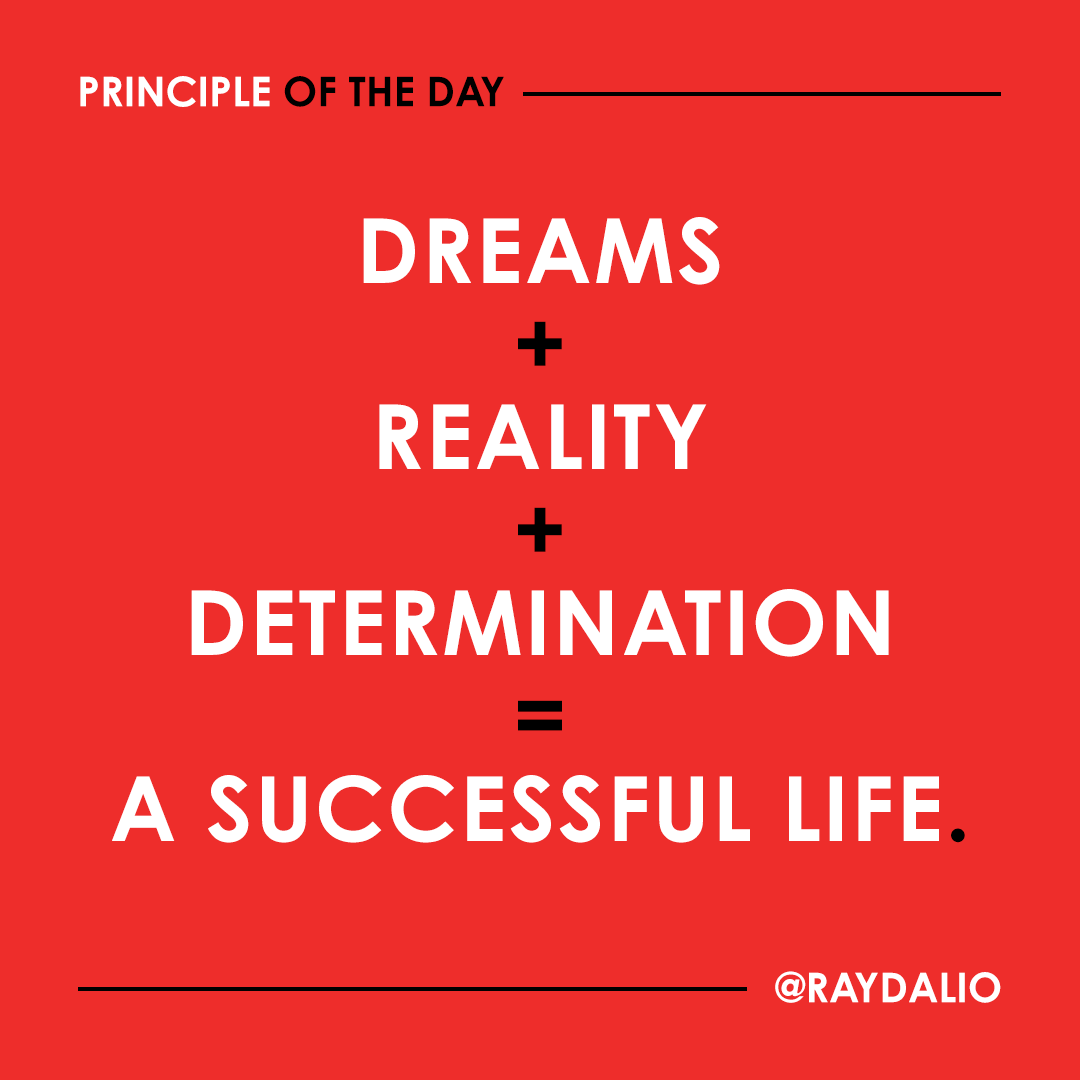
People who achieve success and drive progress deeply understand the cause-effect relationships that govern reality and have principles for using them to get what they want. (1/4) 

The converse is also true: Idealists who are not well grounded in reality create problems, not progress. What does a successful life look like? We all have our own deep-seated needs, so we each have to decide for ourselves what success is. (2/4)
I don’t care whether you want to be a master of the universe, a couch potato, or anything else—I really don’t. Some people want to change the world and others want to operate in simple harmony with it and savor life. Neither is better. (3/4)
Each of us needs to decide what we value most and choose the paths we take to achieve it. (4/4)
• • •
Missing some Tweet in this thread? You can try to
force a refresh




